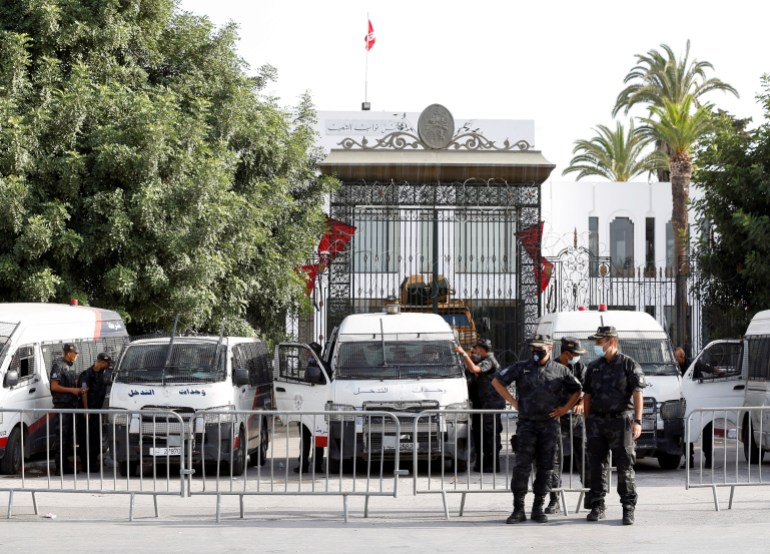Al Jazeera Net - Special
days after the decisions of Tunisian President Qais Saeed to implement exceptional measures, and the accompanying measures related to disrupting the work of Parliament and lifting the immunity of its deputies;
Many wondered why these decisions were not published in the country's official newspaper until presidential orders became effective.
On the other hand, Al-Raed (the Official Gazette in Tunisia) published - in succession - 3 presidential orders, related to the dismissal of the Prime Minister and his entire ministerial team, and the prevention of the curfew of people and vehicles throughout the territory of the Republic, in addition to exceptional provisions related to the work of state employees, local groups and public institutions with Administrative character.
Independent MP Ayyad Al-Loumi described the failure to publish decisions to disrupt parliament and lift the immunity of his deputies in the Official Gazette as an illegal procedure, accusing the president of arbitrarily using the constitution.
Al-Loumi pointed out - in an interview with Al-Jazeera Net - that publishing these decisions in the Official Gazette authorizes any deputy to go to the judiciary - specifically the Administrative Court - to challenge them.
He pointed out that Qais Saied may fear this measure by the deputies and the Speaker of Parliament.
He continued, "Parliament is currently closed without any legal reason and military tools, which rises to the level of a coup. We are now under the weight of martial law."
Al-Loumi clarified the official position of the House of Representatives, which considers itself in session.
The representative rejects - absolutely - the decisions of the President of the Republic.
Al-Loumi warned of the consequences of what he described as "dictatorship and the rule of one individual."
He called on Tunisians to beware of the dangers of falling under the brunt of martial law, and to stop the law and the constitution.
not obligatory
On the other hand, Professor of Constitutional Law Khaled al-Dababi considered that publishing the decisions to disrupt Parliament and lift the immunity of MPs - in the Official Gazette - is not a legal duty, pointing out that "exceptional measures" are not necessarily published in the "Official Gazette".
He pointed out that appointments and exemptions for state officials are necessarily published in the Official Gazette, but with regard to the president's presiding over the executive authority, the public prosecution and the freezing of parliament's work;
Not a binding order.
Al-Dababi pointed out that the approval of the "exceptional measures" stipulated in Article 80 of the Constitution is limited to one month.
It is likely that the president decided not to publish the decision in the Official Gazette, to give himself additional time.
But in this case - says al-Dababi - "the president is in a situation of violation and circumvention of the constitution."
Tunisian forces are present in front of the parliament headquarters in the capital, after President Kais Saied's decision to freeze his work (Reuters)
international pressure
For her part, the leader of the Ennahda movement, Sana Mersini, considered the Tunisian president's failure to publish the orders to freeze the parliament's work for a month in the official newspaper;
Evidence of the presence of domestic and international pressures.
And she indicated - in her speech to Al-Jazeera Net - that the positions announced by civil and other international organizations - which called for the rapid return of Parliament's work and the suspension of exceptional measures - "evidence of the president's retreat and delay in not going to Al-Aqsa."
She concluded by saying, "We received with satisfaction what the president said that what he did of exceptional measures are temporary, to protect the state, and that he will preserve the gains, rights and freedoms that the revolution brought."

